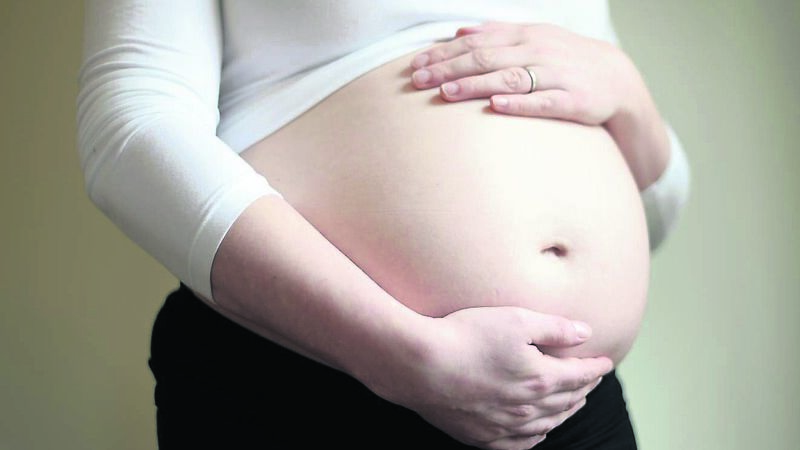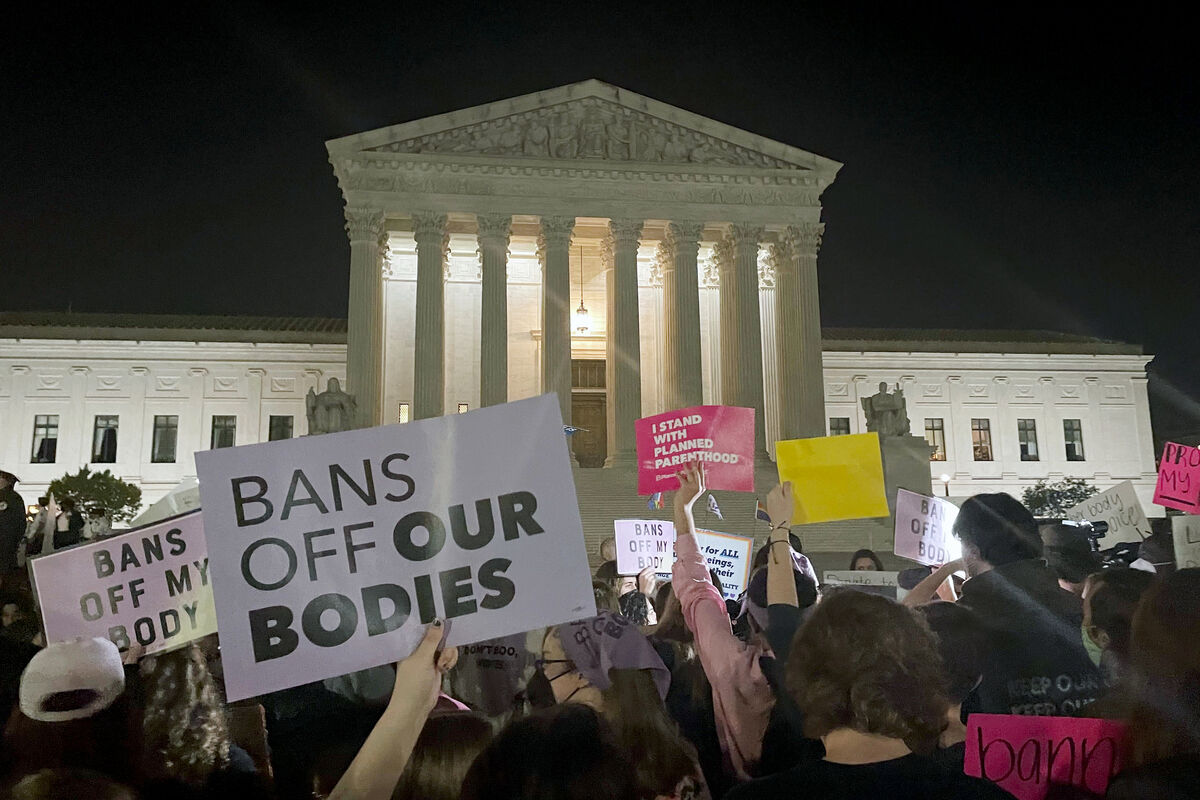Comment: Threat to Roe v Wade sees state power used to control women’s bodily autonomy

Ireland travelled down this road for most of the 20th century, when women and girls, many survivors of rape or incest, were forced to carry pregnancies to term and then relinquish their children in the mother and baby homes.
The United States Supreme Court (Scotus) is poised to revoke bodily autonomy for women, girls and pregnant people, with prominent Irish Americans Justice Kavanaugh and Justice Barrett leading the charge. Justice Barrett’s reasoning, in particular, begs interrogation.
At the December Scotus hearing on Mississippi’s challenge to Roe v Wade, Justice Amy Coney Barrett asked: “Why don’t the safe haven laws take care of [the forced parenting] problem?”
She then posed a ghoulish choice: “…the ability to get an abortion at 23 weeks or the state requiring the woman to go 15, 16 weeks more and then terminate parental rights at the conclusion.”
Without recondite legal reasoning, Justice Barrett’s remarks amount to partisan, dystopian — and destructive — thinking on women’s health.
First, forcing women to go “15, 16 weeks more” to term is risky. The mortality rate associated with childbirth in the US is 14 times higher than that of legal induced abortion.
Abortion is also associated with less pregnancy-related morbidity. Mississippi’s maternal mortality rate is higher than the national average in the US, which has the highest rate of any wealthy nation. Black women in Mississippi, the state that challenged Roe, are almost three times as likely to die of pregnancy-related causes than white women.

Asserting that Safe Haven laws will protect children and lessen the burden to child-bearers is outrageous.
Barrett seems to imagine that state-sponsored child welfare systems are an adequate solution for forced parenthood.
Ireland travelled down this road for most of the 20th century, when women and girls, many survivors of rape or incest, were forced to carry pregnancies to term and then relinquish their children in the mother and baby homes.
Black and Native American children are overrepresented in foster care. They stay in the system longer than white children — in 2016, only 17% of adopted children were black, despite comprising 23% of children in foster care waiting for adoption.
White children made up 44% of that population but represented 49% of children adopted that year. Black and Native American children are also more likely to experience a termination of parental rights but less likely to receive services.
The injustices extend to the child-bearer. People who relinquish a child after the state-determined time frame, fail to surrender their child at a safe haven, or whose child shows evidence of abuse or neglect can still be prosecuted for abandonment. And in this deeply racialised child welfare system, black families are more often found to be guilty of abuse or neglect.

Mississippi, leading the fight to repeal Roe, has a pernicious history of abuse, neglect, and death in its child welfare system. In the case of Olivia Y, a plaintiff in the 2004 case against Mississippi’s Division of Family and Children’s Services, the severely malnourished 22-pound three-year-old received no medical attention during her three months and five home placements [including with a convicted rapist] in state custody.
But in the decade following the case’s settlement, Mississippi implemented only 37 of the 113 court-mandated reforms. Monitors of Mississippi’s foster care system have noted untimely follow-up for maltreatment investigations and inconsistent data reporting.
As Barrett touts child welfare systems as a justifiable abortion alternative, the money tells another story: Mississippi slashed $13.4m from these programmes between 2017 and 2018.
Unsurprisingly, Barrett frames herself as a champion for "unborn children" despite her silence on well-documented defects within child welfare systems.
Barrett is trudging along a well-worn path. A comparison of abortion rights in the US and Ireland shows two countries moving in opposite directions.
Ireland’s Eighth Amendment codifying abortion bans was ratified in 1983, just 10 years after Scotus’s Roe v Wade ruling. But by 2018, Irish citizens were showing up in droves to repeal the amendment.
Barrett’s assertions are contradicted by facts, science, and history. Instead of subscribing to the anti-choice fantasy of a safe haven, those who care about the welfare of pregnant people and children must urge Scotus to uphold Roe v Wade.
- Terry McGovern, JD, is chair of the Heilbrunn Department of Population and Family Health and director of the Global Health Justice and Governance Program at Columbia University Mailman School of Public Health.
- Malia Maier, MPH, is senior program officer in the Heilbrunn Department of Population and Family Health at Columbia University Mailman School of Public Health. The authors have no financial interests or relationships to disclose.












